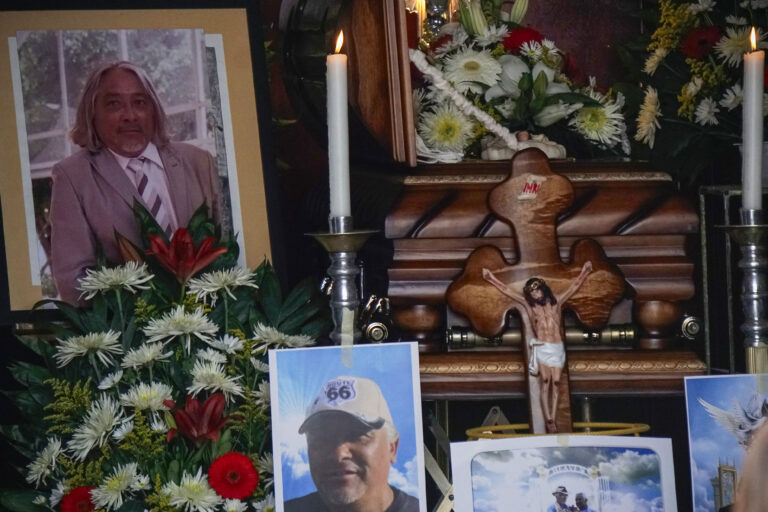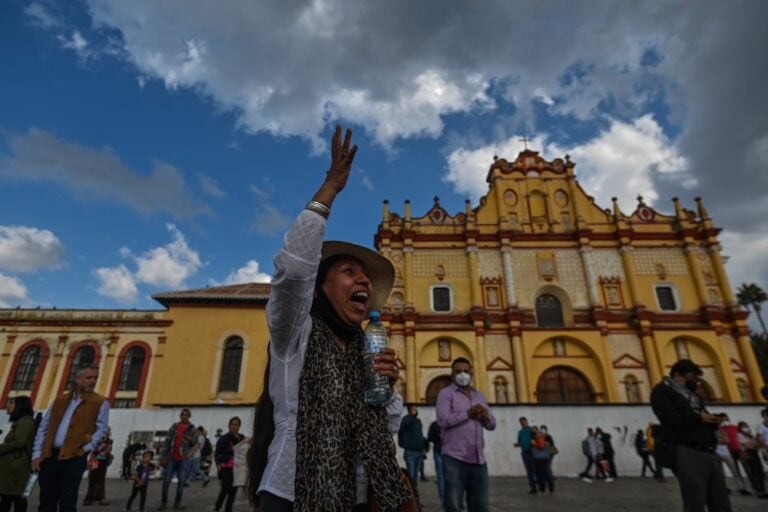(CENCOS/IFEX) – On 29 June 2007, after 33 years on air, Radio Monitor radio station broadcast its last programme, becoming the first national media outlet to disappear during the mandate of President Felipe Calderón Hinojosa. With this closure, both an avenue for freedom of expression and a source of work for journalists are being lost. […]
(CENCOS/IFEX) – On 29 June 2007, after 33 years on air, Radio Monitor radio station broadcast its last programme, becoming the first national media outlet to disappear during the mandate of President Felipe Calderón Hinojosa. With this closure, both an avenue for freedom of expression and a source of work for journalists are being lost. The station broadcast from Mexico City, and its news programming was among the most popular in the country.
Regrettably, the closure is a triumph for powerful political and economic groups that monopolise the radio broadcasting frequencies in order to look after their own interests, ignoring the fact that the fundamental purpose of a media outlet should be to inform the public, objectively and impartially, as implied by the constitutionally-guaranteed right to freedom of expression.
The station succumbed to debts after confronting, throughout the six-year tenure of former president Vicente Fox Quesada, various economic and administrative pressures, as well as a legal wrangle with Grupo Radio Centro over the latter’s arbitrary 2004 decision to cancel its broadcast of Radio Monitor’s programmes. The debts were caused by the withdrawal of government advertising contracts due to pressure by Fox and his wife. These pressures also led to the cancellation of private advertising contracts, leaving Radio Monitor without the income needed for survival. The publicity boycott was in retaliation for Radio Monitor’s having covered the campaign of Andrés Manuel López Obrador, Fox’s rival in the 2006 elections.
José Gutiérrez Vivó, general director of Grupo Monitor, Radio Monitor’s owner, announced the end of the morning news programme, after 41,000 broadcasts, adding that the print version would continue to be produced. During the last broadcast, Gutiérrez Vivó said that the group itself was drowning in debt. Symptoms of a possible imminent bankruptcy became apparent in December 2006, when he announced it would stop broadcasting its FM programming because it lacked the resources to pay the station’s rent.
Gutiérrez Vivó has paid a high price for challenging Fox and his wife, who tried to silence the station, thereby using their power to violate the right to inform and be informed. It is unacceptable that campaigns attacking media outlets and press freedom, orchestrated by those who exercise political and economic power, can be imposed in disregard of fundamental rights. Radio Monitor’s closure demonstrates clearly the need for informational diversity and the importance of having different opinions to enrich public discourse and allow broad debate of ideas. It is also symptomatic of how far Mexico still has to go in order to guarantee pluralism of ideas, an indispensable element for any democracy.


